
Blaue Moschee, Sultan Ahmet Moschee, Istanbul, Türkei » Eine weitere Türkei
The Sultan Ahmet Camii, or Blue Mosque, is a prominent, functioning Istanbul mosque that sports an iconic Islamic and late classical Ottoman architecture style. With its 6 minarets, you won't have to look too hard to spot the mosque that towers over much of the surrounding area in Istanbul. You're free to tour the mosque as much as you like.
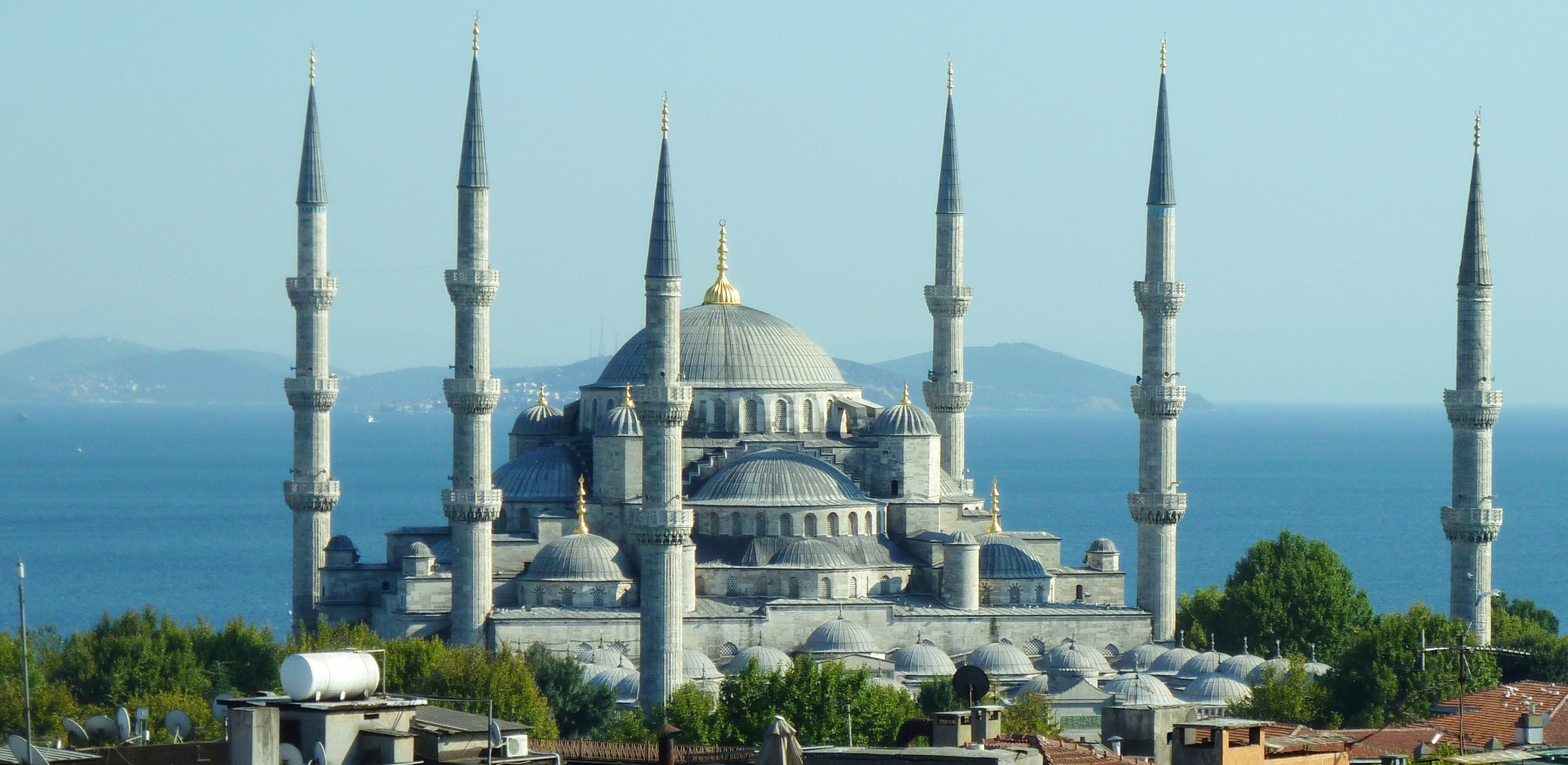
SultanAhmetCamii/SultanAhmedMoschee (Blaue Moschee) Foto & Bild world, istanbul, europe
Blue Mosque. Sultanahmet, Istanbul, Turkey, Europe. Top choice in Sultanahmet. İstanbul's most photogenic building was the grand project of Sultan Ahmet I (r 1603-17), whose tomb is located on the north side of the site facing Sultanahmet Park. The mosque's wonderfully curvaceous exterior features a cascade of domes and six slender minarets.

Fotoğraf Tanıtma Genel Müdürlüğü
The Blue Mosque in Istanbul, also known by its official name, the Sultan Ahmed Mosque (Turkish: Sultan Ahmet Camii), is an Ottoman-era historical imperial mosque located in Istanbul, Turkey.It was constructed between 1609 and 1617 during the rule of Ahmed I and remains a functioning mosque today. It also attracts a large number of tourists and is one of the most iconic and popular monuments of.
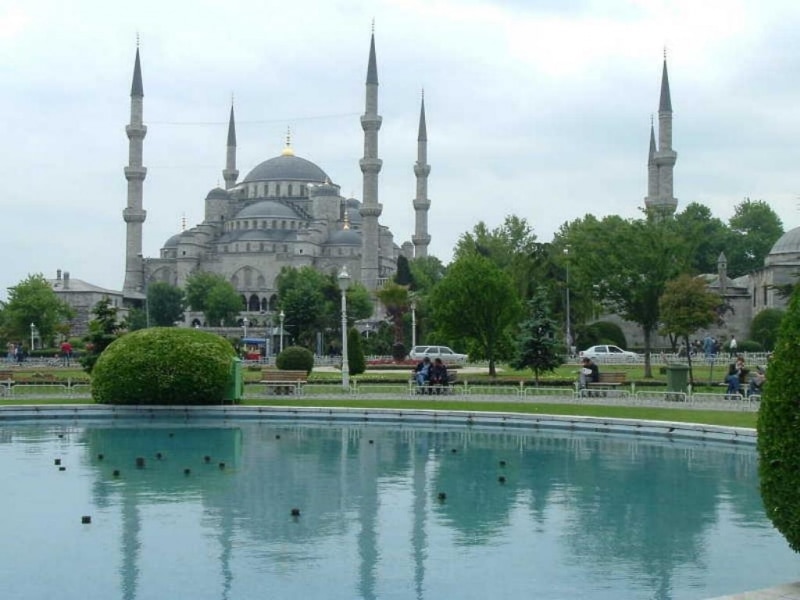
İstanbul Sultanahmet Camii, Tarihi, Nerede, Nasıl gidilir?
The Sultan Ahmet Mosque or Blue Mosque is one of Istanbul's most iconic historic al landmarks. It is so named because of the blue tiles used on the walls of the interior. It is an important part of the city's skyline with its six spectacular minarets. The mosque also exudes one of Istanbul's most reverberating calls to prayer six times a day.

Sultan Ahmet Camii Blue Mosque In Istanbul Stock Photo Getty Images
İstanbul'un eşsiz güzelliklerinden biri olan Sultanahmet Camii, Türkiye'nin en önemli ve en çok ziyaret edilen tarihi yapılarından biridir. Cami, Osmanlı İmparatorluğu'nun en görkemli dönemlerinden birinde, 17. yüzyılda inşa edilmiştir. Dışarıdan muhteşem görünen bu caminin iç yapısı da aynı derecede etkileyicidir.

Türkei, Istanbul, Sultanahmet, SultanAhmetCamii, genannt die Blaue Moschee Stock Photo Alamy
The Sultan Ahmet Mosque, popularly known as the Blue Mosque, was completed in 1617 just prior to the untimely death of its then 27-year-old eponymous patron, Sultan Ahmet I. The mosque dominates Istanbul's majestic skyline with its elegant composition of ascending domes and six slender soaring minarets. Although considered one of the last.

Blue Mosque Istanbul Turkey Sultan Ahmet Camii (1920x1080) wallpaper
The architectural details of the Sultan Ahmed Mosque make it one of Turkey's most beautiful mosques: 1. Blue tiles: The mosque's interior features about 20,000 hand-painted blue tiles in the Iznik pottery style. These Iznik tiles feature 60 unique tulip patterns. Light pours in through 260 stained glass windows.

Sultan Ahmet Camii (Blue Mosque) in Istanbul Visit an Iconic UNESCO Mosque Go Guides
The Sultan Ahmed Mosque of Istanbul globally renowned as the Blue Mosque (Sultan Ahmet Camii), symbolizes the profound cultural legacy and architectural magnificence of Istanbul.. Constructed during the rule of Ahmed I between 1609 and 1616, the mosque earns its colloquial name from the thousands of hand-painted blue tiles adorning its interior walls. Its sublime aesthetic appeal extends.

Sultan Ahmet Camii (Blue Mosque) in Istanbul Visit an Iconic UNESCO Mosque Go Guides
Blue Mosque (Sultanahmet Mosque). Also known as the Sultan Ahmet Camii (or Sultan Ahmed Mosque), this breath-taking building is one of the most majestic Ottoman mosques in all of Turkey.. Blue Mosque History. The Blue Mosque was built between 1609 and 1616, by the architect Mehmet Ağa, instructed by Sultan Ahmed I.It was designed as an imperial show of strength to complement the imposing.
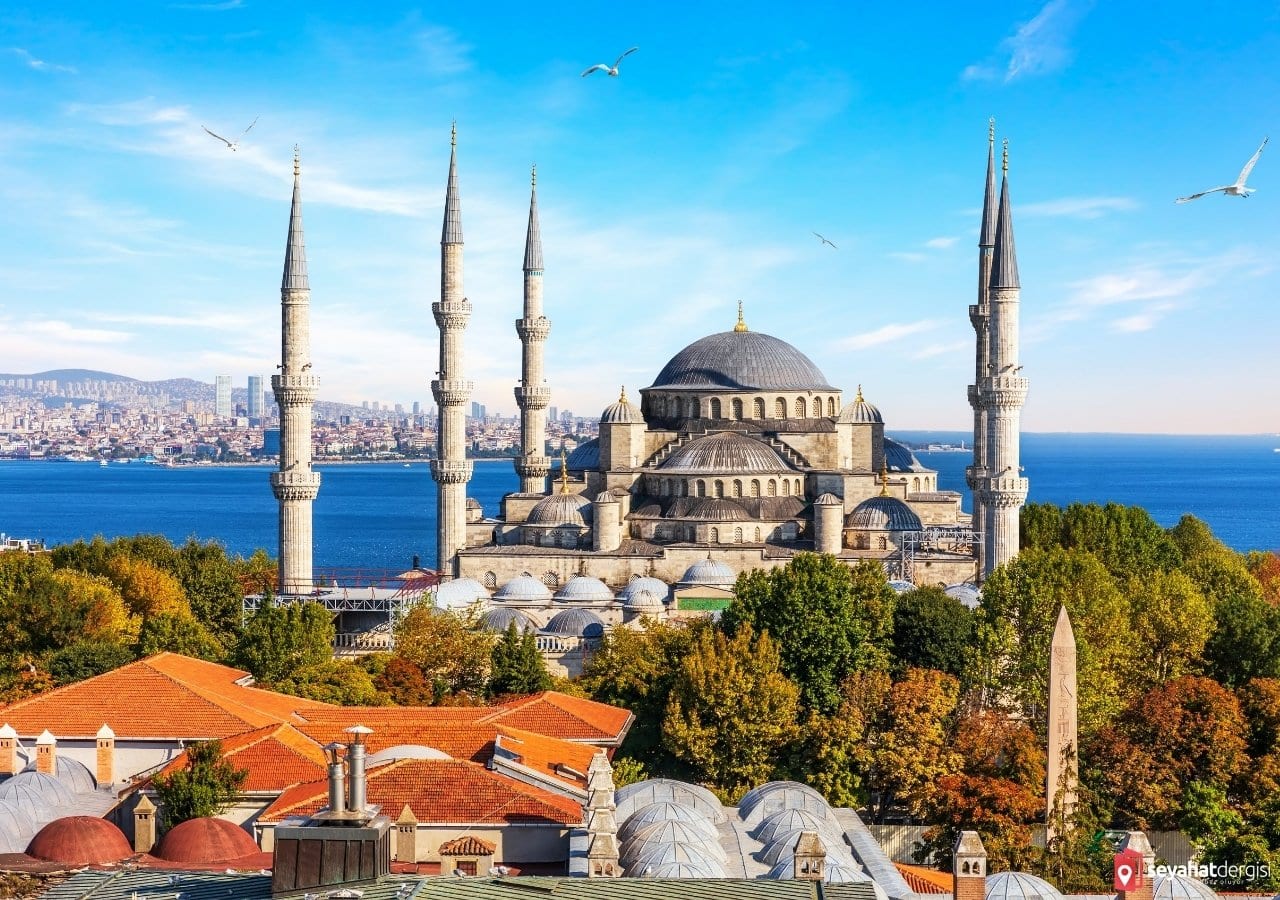
Sultan Ahmet Camii Nerede? Tarihi ve Özellikleri
The Sultan Ahmed (Blue)Mosque. The Sultan Ahmed Mosque was built between 1609-1617 (the construction took about 7,5 years) by Sedefkar Mehmet Aga upon the order of Sultan Ahmed I, who ascended to throne at the age of 14 as the 14th Sultan of Ottomans. He was only 19 years old when he commissioned to build this great mosque to Sedefkâr Mehmet Aga.
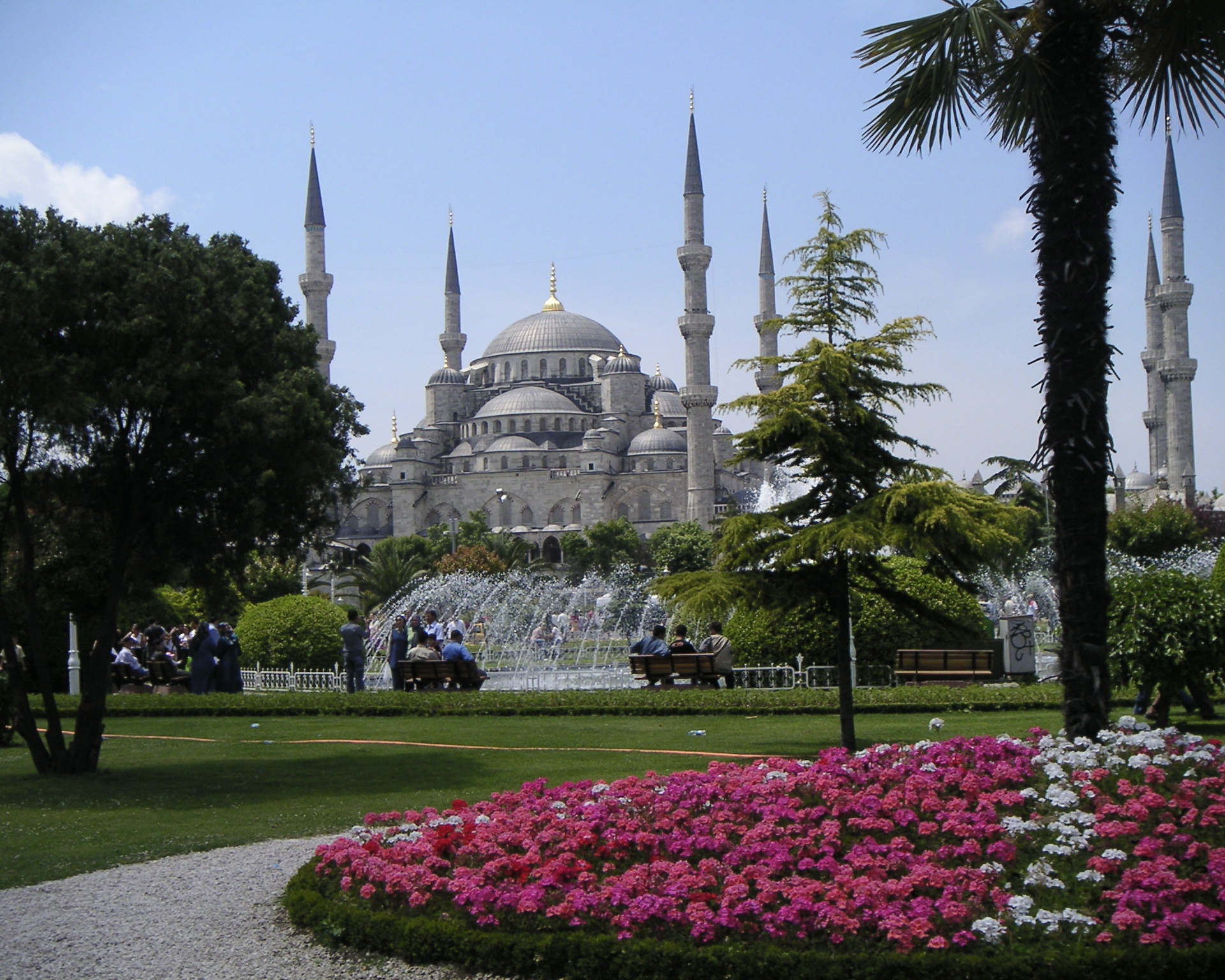
Blue Mosque (Sultan Ahmet Camii) Istanbul, Turkey
The Blue Mosque (Called Sultanahmet Camii in Turkish) is an historical mosque in Istanbul. The mosque is known as the Blue Mosque because of blue tiles surrounding the walls of interior design.Mosque was built between 1609 and 1616 years, during the rule of Ahmed I. just like many other mosques, it also comprises a tomb of the founder, a.

SULTAN AHMET CAMİİ Biansiklopedi
Blue Mosque (Sultan Ahmet Camii) Istanbul, Turkey. Our Rating Neighborhood Sultanahmet Transportation Tram: Sultanahmet Phone 0212/458-0776. About our rating system. This grand bubble of masonry, one of the great and defining features of Istanbul's skyline, was constructed between 1609 and 1617 by Sultan Ahmet I, who was not only driven by a.

Sultanahmet Camii aka Blue Mosque, Istanbul, Turkey Dronestagram
Sultanahmet Camii. Istanbul, Turkey. The Sultanahmet Mosque, known as the Blue Mosque, is the central element of the complex built by Ahmed I (r. 1603-1617/1012-1026 AH). Primary sources date the foundation of the mosque to 1609/1018 AH and the completion to 1617/1026 AH. Its architect is Mehmed Aga (d.1622), whose epithet "Sedefkar" refers to.
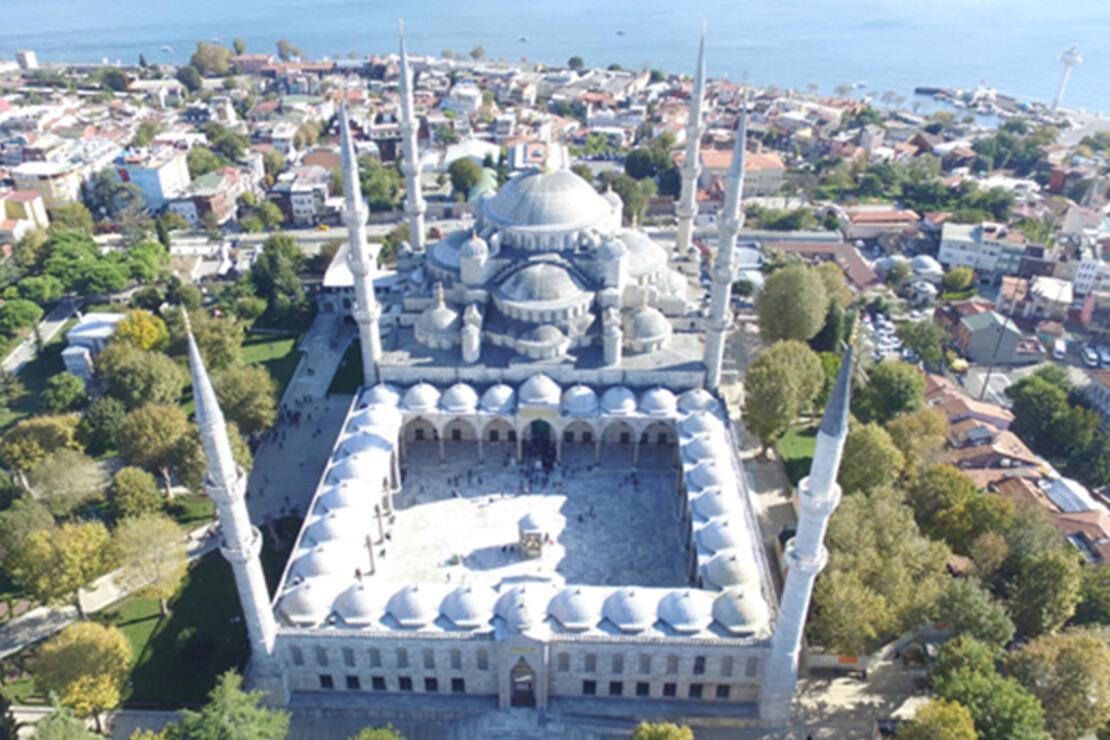
Sultan Ahmet Camii Nerede? Sultan Ahmet Camisi Tarihi, Özellikleri, Hikayesi Ve Mimarı Hakkında
The Sultan Ahmet Mosque, popularly known as the Blue Mosque, was completed in 1617 just prior to the untimely death of its then 27-year old eponymous patron, Sultan Ahmet I. The mosque dominates Istanbul's majestic skyline with its elegant composition of ascending domes and six slender soaring minarets. Although considered one of the last.
FileSultanahmet Camii 2006.JPG Wikimedia Commons
Sultanahmet Camii. / 41.00528°K 28.97694°D / 41.00528; 28.97694. Sultan Ahmet Camii veya Sultânahmed Camiî, 1609-1617 yılları arasında Osmanlı Padişahı I. Ahmed tarafından İstanbul 'daki tarihî yarımadada, Mimar Sedefkâr Mehmed Ağa 'ya yaptırılmıştır. [1] Cami; mavi, yeşil ve beyaz renkli İznik çinileriyle.
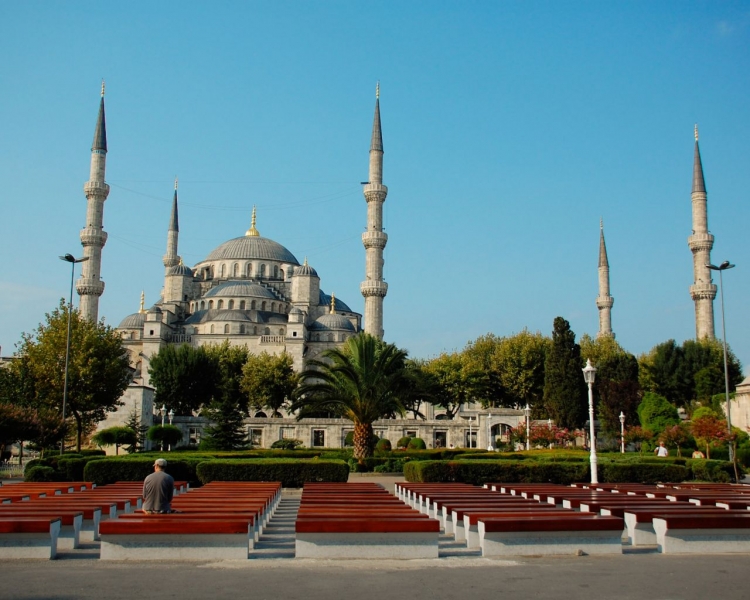
İstanbul Sultan Ahmet Camii, Tarihi, Nerede, Nasıl gidilir? Gezilecek Yerler Gezilmesi
Sultan Ahmet Camii külliyesiyle birlikte, İstanbul'daki en büyük yapı komplekslerinden biridir. Fotoğraf: Tanıtma Genel Müdürlüğü Bu külliye bir cami, medreseler, hünkar kasrı, arasta, dükkânlar, hamam, çeşme, sebiller, türbe, darüşşifa, sıbyan mektebi, imarethane ve kiralık odalardan oluşmaktadır.